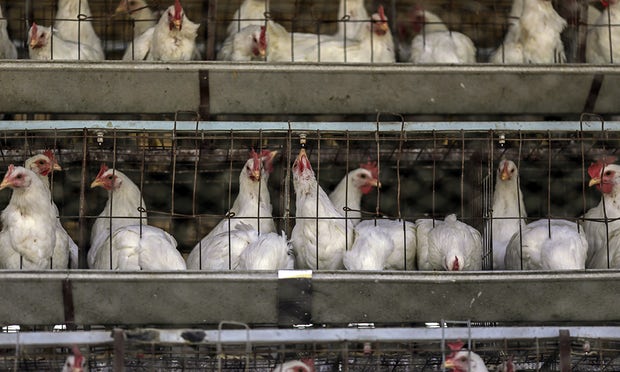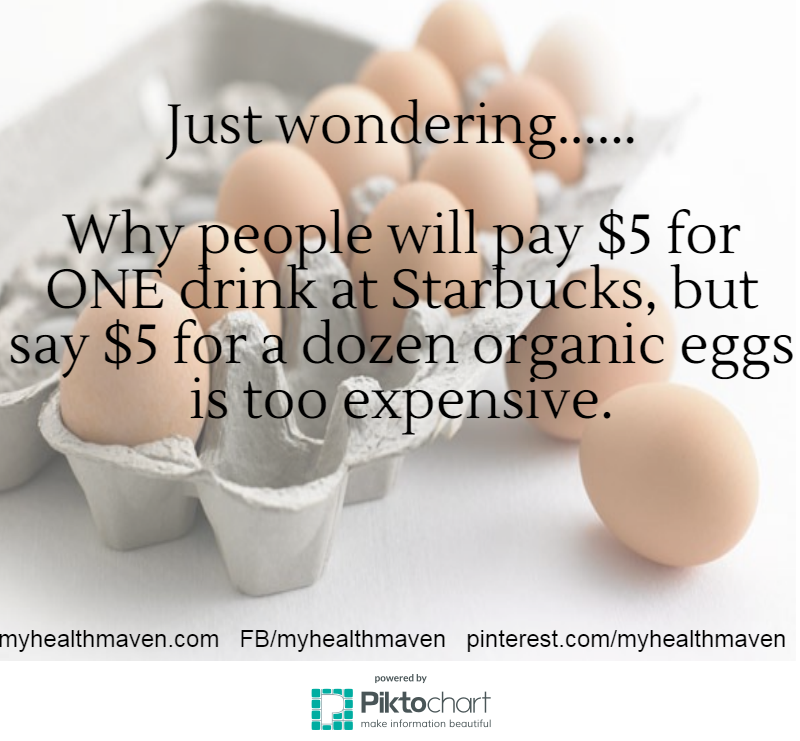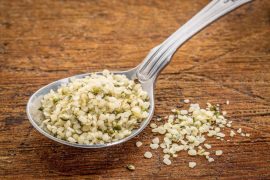When I was growing up, eggs were white and sold in uniform containers. There were no other store options. Consumer choices were very limited. Brown eggs were sold at local farmer’s markets or stands. That is no longer the case. When you are at the grocery store staring at the refrigerated section with eggs, it is easy to feel overwhelmed by the numerous labels on egg cartons.
There are all kinds of labels on egg cartons; hormone free, cage free, organic, but what exactly do they mean? Why does it seem that the more labels on the package, the more expensive they seem to be? Some of the terms are regulated by the USDA others are simply are marketing ploy…so how do you know if your eggs are worth the extra money?
Twenty One Labels Used on Egg Cartons
Let me clarify that there are an overwhelming number of marketing terms used to describe eggs and I’m sure I’ve missed a few….but here are twenty one to get you started. Additional resources are listed at the end of the article if you’d like to delve a little deeper.

Animal Welfare Approved. Participants of this program follow stringent guidelines. The guidelines include Independent farmers with small flocks of fewer than 500, considerable outdoor time to engage in natural behavior, animal by-products in feed is prohibited. Participants can receive annual audits by the Animal Welfare Institute.
American Humane Certified. This category is through the American Humane Association and is similar to the previous one, these hens are not subjected to forced molting, which increases egg production, beak cutting however is allowed.
Biodynamic-This certification is from Demeter USA. To receive this label organic standards must be followed, as well as protecting biodiversity and building soil health.
Cage-free. While these birds are not in cages, they also may not be allowed access to the outdoors. Each bird on average has one square foot of space.
Certified Humane-This HFAC (Humane Farm Animal Care) label simply certifies that the hens have 108 square feet per chicken to move around and are cared for by trained handlers.
Certified Organic-This label is regulated by the USDA. Hens are allowed access to the outdoors. Their food doesn’t contain antibiotics, animal by products or GMOs.
Comfort Coop/Enriched Colony-These birds are keep in larger cages. They have use of communal barn in which they may be able to have natural behavior options such as nesting, perching and scratching for food.

Farm Fresh/Farm Raised-All chickens are raised on a farm, it’s simply a matter of what type of farm. So this is really a marketing label that doesn’t give you any information.
Fertile: This means the hens lived with roosters. This may also mean they were cage-free.
Free Range. These birds have access to the outdoors for a minimum of six hours daily with only 2 square feet of space per bird, part of that access may also be concrete areas.
Grass-fed– According to USDA regulation grass-fed animals get the majority of their nutrients from grass throughout their life. While chickens that Chickens that are grass-fed eat a more natural diet, it doesn’t specify that the chickens feed could also be supplemented with feed containing GMOs, pesticides and animal products.
Humanely-raised: This is a pretty generic marketing label. Look for specific third party labels like Certified Humane or The Humane Society. To see if those organizations definition of humane meets your own definition of humane, go their website to read their read their standards.
No Antibiotics-Another generic marketing label since the Food and Drug Administration (FDA) does not allow routine use of antibiotics. In general, this term means no antibiotics were added to the water or feed during their growing period and while the hens are laying eggs. They can be used if a bird is ill.
No Hormones. This label is meaningless because the FDA does not allow any hormone products in egg production. Every egg should already be hormone-free.
Natural or Naturally Raised. Technically, the USDA states that the eggs must be minimally processed and contain no artificial ingredients. It does not however specify how or where the chickens are kept or what they are fed.
Omega-3 Enriched- Producers of eggs carrying this label enhance the diet of hens with flaxseed, which can increase levels of omega-3 fatty acids. Omega 3’s are beneficial for heart health and brain development. However, they are not inspected by the FDA for their omega-3 content unless there is a complaint.
Organic- According to the USDA an egg that is certified organic is free of antibiotics and their feed contains no pesticides, fertilizers, and other chemicals. If however the organic label carries a state agency’s name, the standards may be different.
Pasture-raised. If there is an HFAC certification it means that hens are outside for at least six hours a day and allowed 108 square feet of space. Hens get part of their food from outdoor sources (eg, bugs, greens), which may increase vitamins and omega-3 fatty acids.
Pasteurized Eggs- These eggs have been exposed to just enough heat to destroy bacteria. Pasteurized eggs are increasingly found in supermarkets. The risk of infection from eggs these days is quite minimal and is almost completely eliminated if they are cooked properly before eating.
 Battery hens at an egg-laying poultry farm. Photograph: Bloomberg/Getty Images
Battery hens at an egg-laying poultry farm. Photograph: Bloomberg/Getty Images
United Egg Producers Certified. This term is applied to birds that are caged or may be in a large cage free building. Birds typically have their beaks cut and their feed includes antibiotics and GMOs. Each hen may only be allowed space equivalent to a letter-sized piece of paper.
Vegetarian. The hens feed does not contain any animal protein. It is important to note that chickens are not vegetarian, they are omnivores; they do naturally eat grubs, caterpillars, insects etc
Your best option is always to buy truly farm fresh eggs from a local farm. You have the opportunity to visit the farm, see where the animals are kept, what they’re fed and to ask the farmer any questions. While this is not an option for everyone, it is usually the healthiest

Find Pasture Raised Eggs in Your Area
References:








